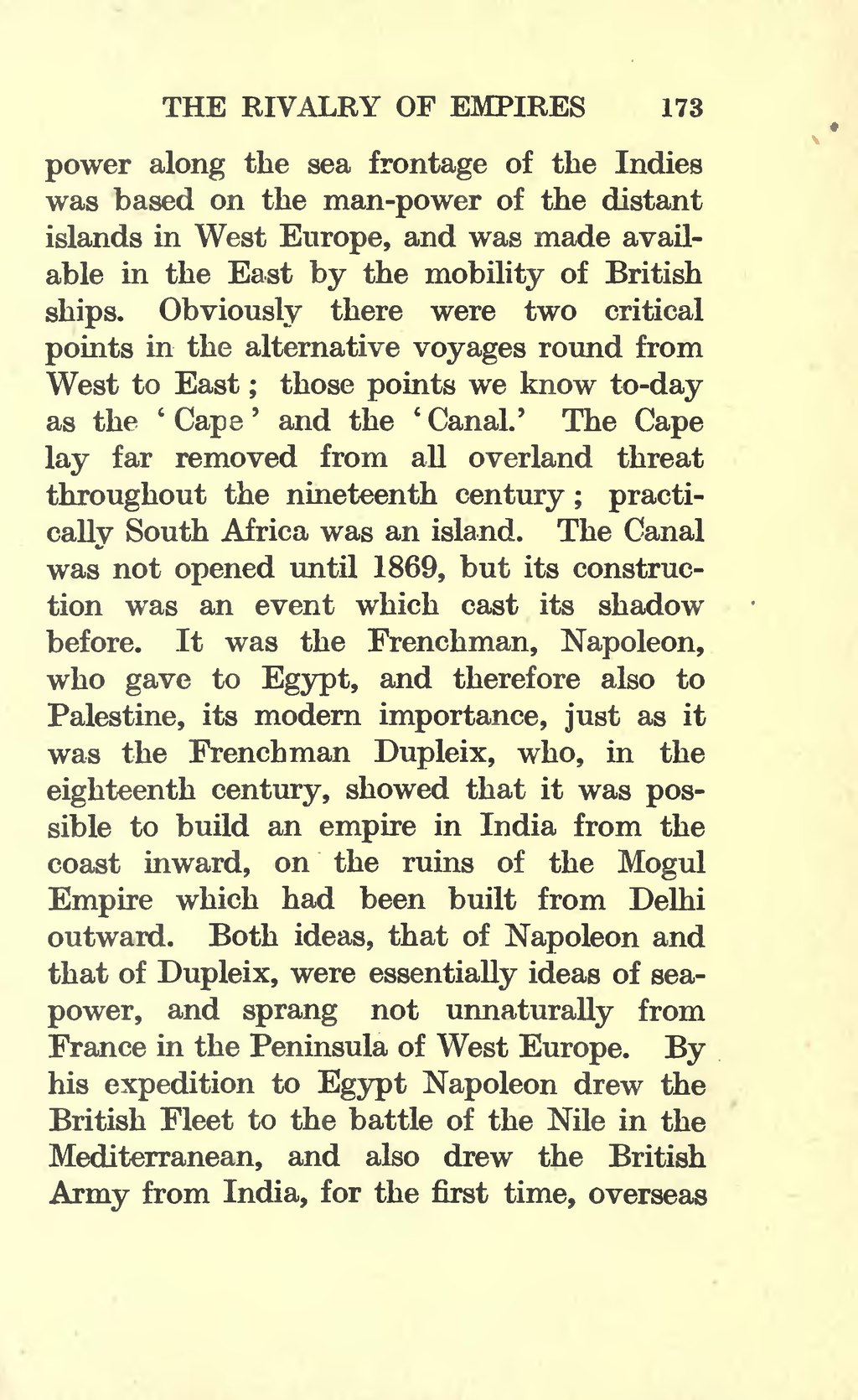power along the sea frontage of the Indies was based on the man-power of the distant islands in West Europe, and was made available in the East by the mobility of British ships. Obviously there were two critical points in the alternative voyages round from West to East; those points we know to-day as the 'Cape' and the 'Canal.' The Cape lay far removed from all overland threat throughout the nineteenth century; practically South Africa was an island. The Canal was not opened until 1869, but its construction was an event which cast its shadow before. It was the Frenchman, Napoleon, who gave to Egypt, and therefore also to Palestine, its modern importance, just as it was the Frenchman Dupleix, who, in the eighteenth century, showed that it was possible to build an empire in India from the coast inward, on the ruins of the Mogul Empire which had been built from Delhi outward. Both ideas, that of Napoleon and that of Dupleix, were essentially ideas of sea-power, and sprang not unnaturally from France in the Peninsula of West Europe. By his expedition to Egypt Napoleon drew the British Fleet to the battle of the Nile in the Mediterranean, and also drew the British Army from India, for the first time, overseas
